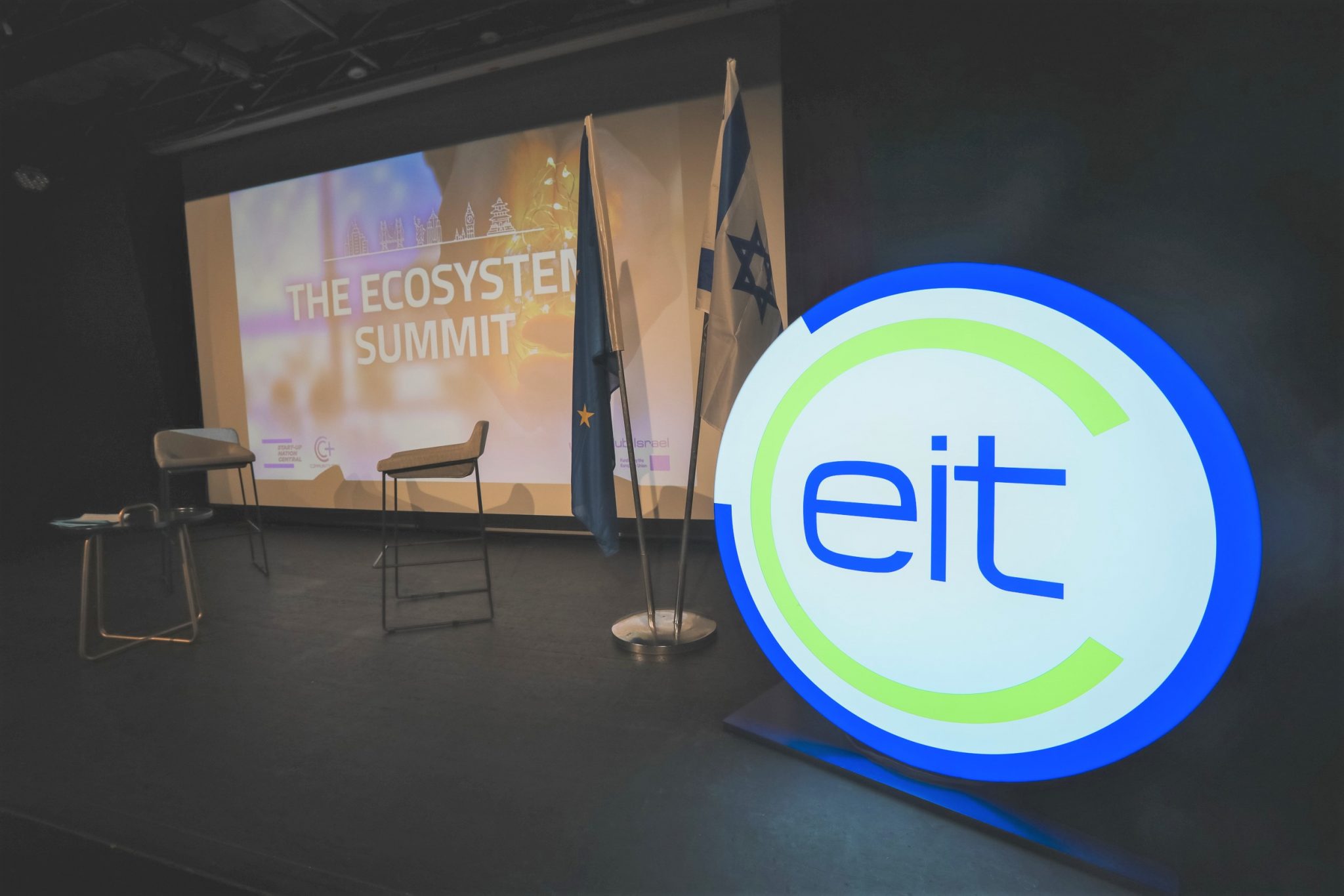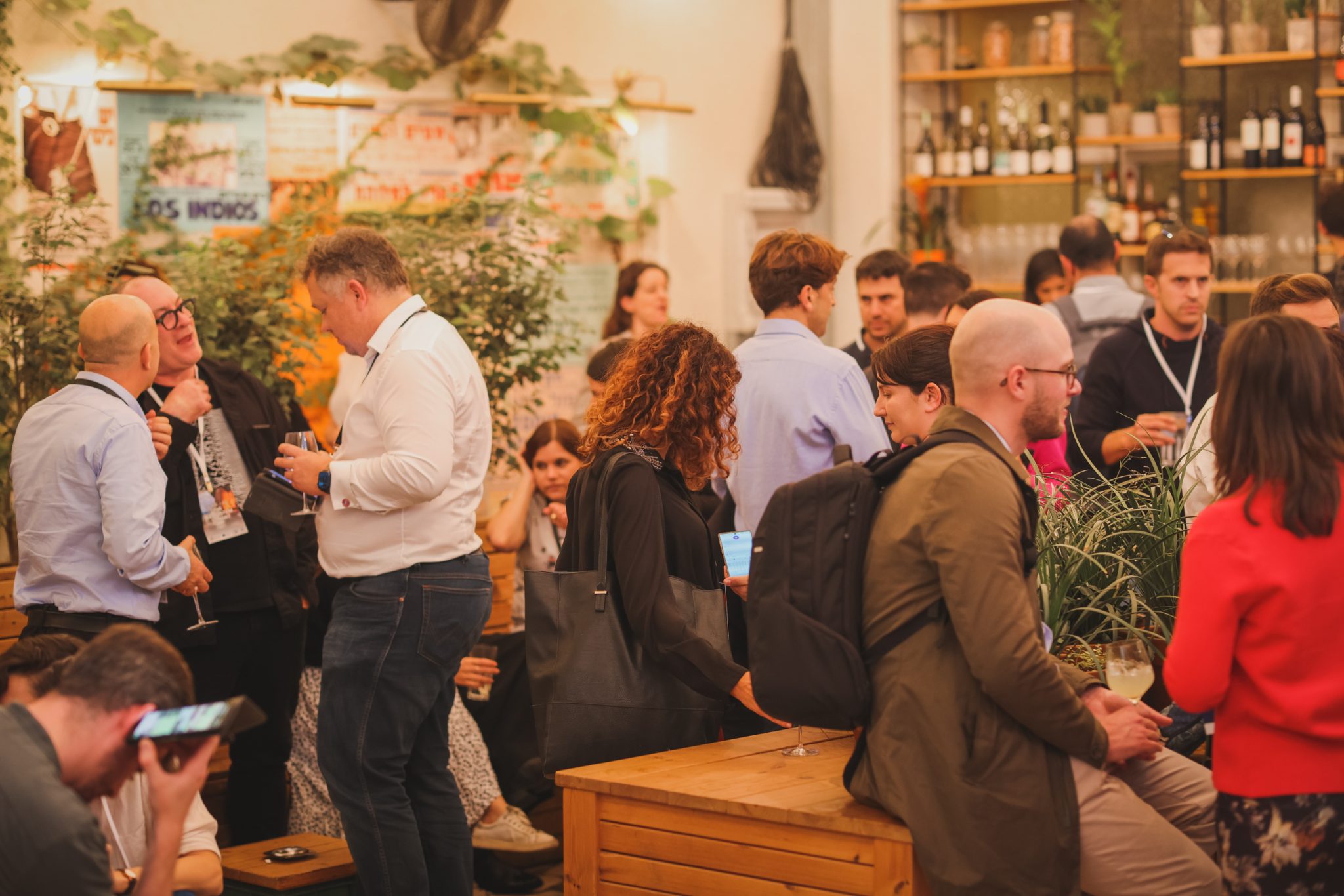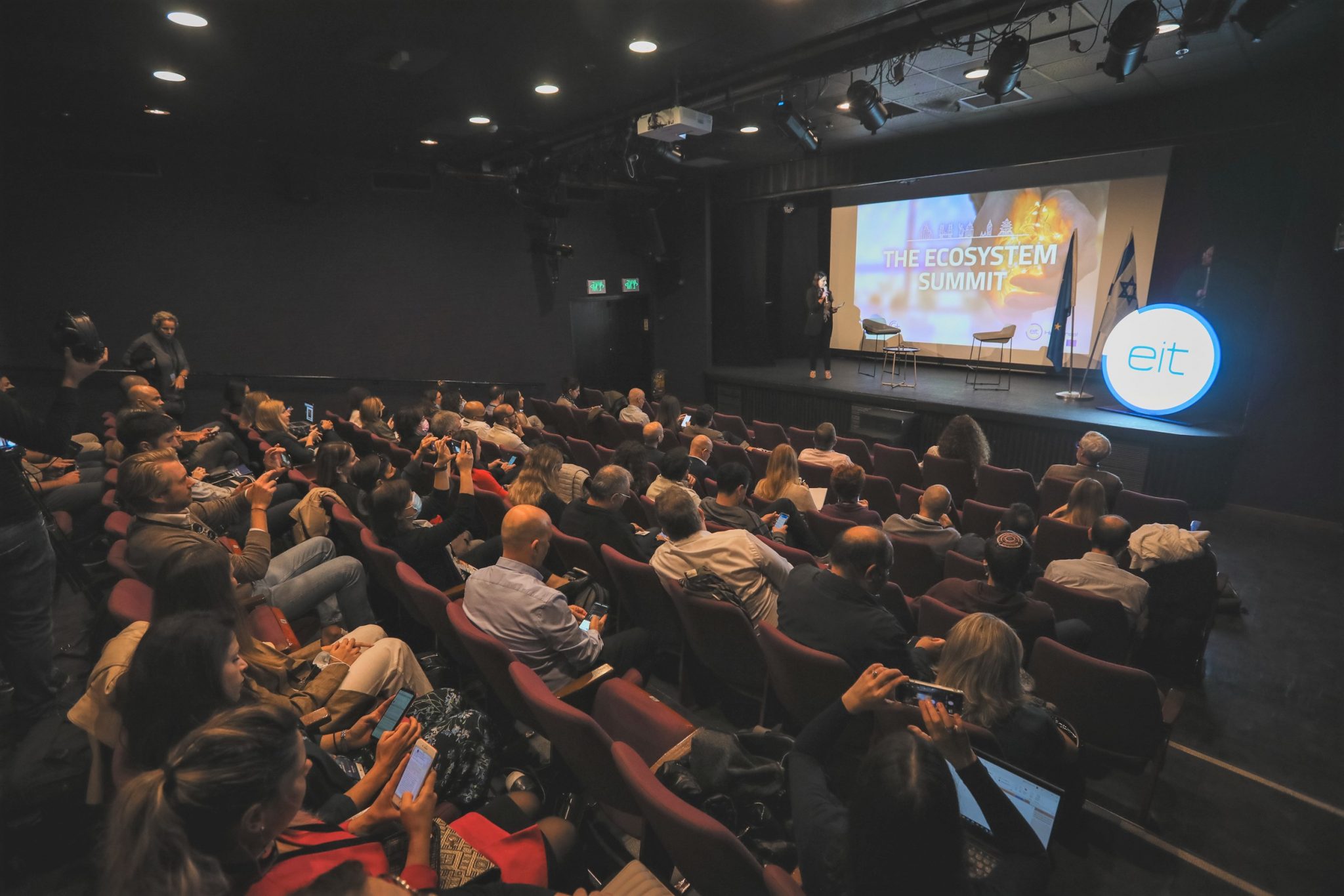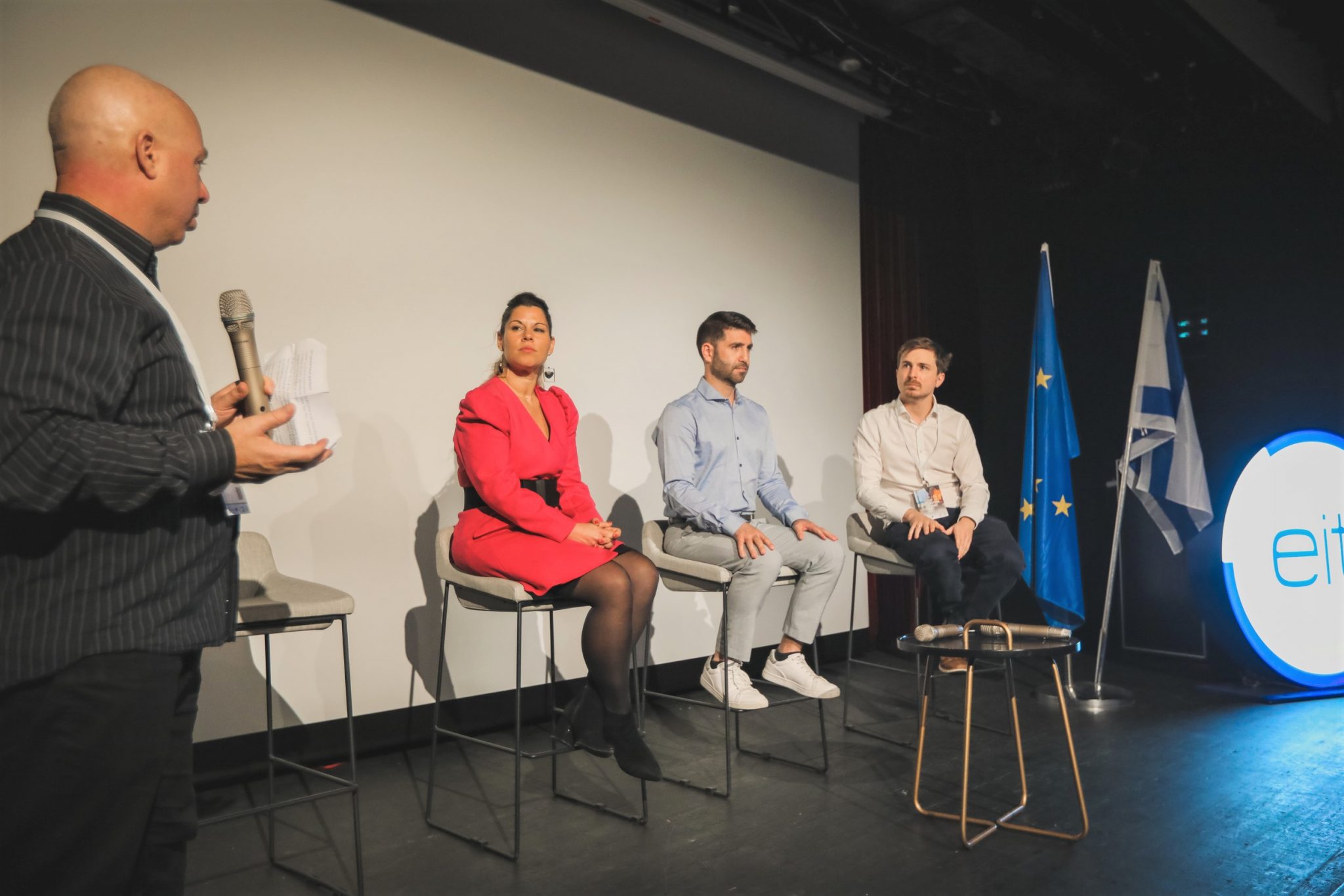EIT Hub Israel boosting innovation ecosystems
14 Jan 2022
The State of Israel formally associated with Horizon Europe to foster ground-breaking innovation. The programme offers significant scientific and economic benefits to both Europe and Israel, and holds immense potential for learning, exchange and collaboration. An example of such exchange is the Ecosystem Summit organised by the EIT Hub in Israel, launched as part of the 2019 EIT Global Outreach Programme. The conference has become a must-attend event to discuss the latest global trends and challenges in the ecosystem world.
A win-win exchange: cooperation between the EU and Israel
On December 6 2021, the agreement on Israel’s association with Horizon Europe, the world’s largest research and innovation programme with a total budget of €95.5 billion, came into force after being signed by Mariya Gabriel, EU Commissioner for Innovation, Research, Culture, Education and Youth and Haim Regev, Israel’s Ambassador to the EU and NATO.
Over the past 25 years, cooperation between the EU and Israel has been consistently evolving, bringing many benefits along the way. Israel’s innovation processes are very agile, with a “fire-fighting” approach that deals mainly with short-term timelines. And they have proven that this works: Israel has the largest number of start-ups per capita in the world (about one per 1,400 inhabitants) and ranks first in the world in R&D spending as a percentage of GDP.
“One of the key ingredients of Israel’s innovation ecosystem is deeply embedded in the country’s daily reality. It lies in the sense of urgency and constraints to survive and innovate today for a better tomorrow. With the example of Israel in mind, it is exciting to see the potential when start-ups unite around a common mission. For Europe and beyond, this can be the driver that enables companies to excel and deliver truly unique and innovative solutions rapidly.” – Said Bram Pauwels, Strategic Partnership Manager at European Business and Innovation Centre Network.
On the other hand, Europe has a long-term approach to certain societal issues. This allows European countries to be proactive rather than reactive. While the action takes longer, decisions are made in a structured, evidence-based way. From the perspective of this continuum, Europe and Israel are clearly complementary. “We represent two extremes, and knowing that the best combination tends to be in the middle, our alliance ensures that we both move forward and reinforce the best on each side.” – Said Michal Seror, Ecosystem Development Director at Start-Up Nation Central.
Europe’s goal of becoming the first carbon-neutral continent and leading the global green transition might inspire and gently push Israel’s high-tech sector to address the climate emergency. Although there are exciting initiatives in Israel such as the Climate Solutions Prize (a $1m prize for innovative responses to the climate crisis sponsored by KKL-JNF in collaboration with Start-Up Nation Central and the Peres Centre for Peace and Innovation), a holistic strategy by the so-called ‘Start-up Nation’ to solve the climate crisis could make a global difference.
The Ecosystem Summit: Building the European-Israeli innovation community

A successful example of EU-Israel collaboration is the aforementioned EIT Hub Israel, launched as part of the 2019 EIT Global Outreach Programme. The EIT Innovation Communities involved are EIT Health (lead), EIT Food, EIT Climate-KIC, EIT Urban Mobility, EIT RawMaterials and EIT Digital as observers. The Hub supports European innovators in attracting Israeli customers, partners and investors and has developed powerful programmes targeting specific audiences, such as Disrupt me (European companies looking to introduce Israeli innovation) or Mission Innovation (an immersion bootcamp for European diplomats), and Connect & Experience (professional training for ecosystem leaders) which facilitates The Ecosystem Summit, the annual conference to celebrate, consolidate and expand the European-Israeli innovation community.

The first Ecosystem Summit took place in 2019 and is held annually. This year’s edition set a new record with 140 participants, 20 top speakers, 6 panels, 3 breakout rooms and 19 ecosystem managers from 12 European countries (Belgium, Finland, Greece, Hungary, Malta, Poland, Portugal, Romania, Spain, Czech Republic, Italy and Sweden). Following the strictest COVID-19 security measures, the 2021 edition was an in-person event that allowed face-to-face professional exchange during the panels, breakout rooms and the main networking event.
“Through the networking part of the Summit, I got to see the variety of roles, people and organisations that take part in building this thriving ecosystem and how they are connected. The Israeli ecosystem has succeeded in seizing the moment and truly coming together to work towards a common goal, selflessly, for the benefit of the whole nation.” – Commented Susanah Aalto, Project Manager Ecosystems of Growth, City of Vantaa, who attended the event.
Main takeaways from the Ecosystem Summit sessions

The event enabled increased collaboration and exchange between ecosystem managers, innovators and entrepreneurs, resulting in the identification of key takeaways to further advance partnerships and impact, including:
- Ecosystems as Start-up Support Systems: “In an uncertain, fast-paced economy, we need to move from hierarchical structures to more flexible, community-based workspaces where it is easier to unleash the full potential and talent of teams.” – Thanks to the experience of Captain Ranit Elkayam, co-founder and Head of the Community Department in the Israel Defence Forces, it was emphasised that even traditionally hierarchical organisations are building communities to retain talented employees and break down silos to enable disruptive innovation.
- The Dark Side of Ideation: In an enriching conversation that captivated the Summit audience, Dr. Amnon Dekel, the Executive Director of ASPER-HUJI Innovate, spoke about the inherent human capacity of ideation and how the Israeli ecosystem (e.g. the delicate balance between competition and collaboration; the entrepreneurial mindset fostered by military service; the acceptance of failure as a learning opportunity) puts this natural capacity in a context where it can flourish.
- The New Era of Acceleration: What struck the audience was that the most significant element for a start-up, in the long run, is the cohort. This was one of the insights of Dr. Gil Avnimelech, an academic expert in the fields of venture capital and entrepreneurship at Ono Academic College, from his ongoing research on start-up accelerators, a key element in the entrepreneurial ecosystem. In a COVID-19 world, start-up accelerators need to move to a hybrid system. Online facilities have clear benefits (e.g., more flexibility, better access to international talent and expertise, etc.), but in-person settings are still critical for comprehensive peer-to-peer learning, mentorship, and a strong, integrated cohort.
- Attracting Funds for your Ecosystem: One of the main topics was how to attract funds for your ecosystem, and the chicken and egg issue: how to attract funds when your ecosystem is not yet mature. The audience learned from Israel about the power of bringing visionary investors into the ecosystem and the importance of keeping them engaged, and the benefits of having the ecosystem represented in global rankings. The main takeaways from Greece are the successful combination of public-private funding to develop the ecosystem and solve problems like losing the most talented entrepreneurs because they are attracted to better opportunities and working conditions in other countries.

To learn more about EIT Hub Israel’s programmes and in particular ‘Connect & Experience’, follow the Hub on Linkedin, subscribe to the newsletter here, or contact Adina Be’er at adina.Beer@eithubisrael.eu with any questions.
*Photo: Niv Mayo





